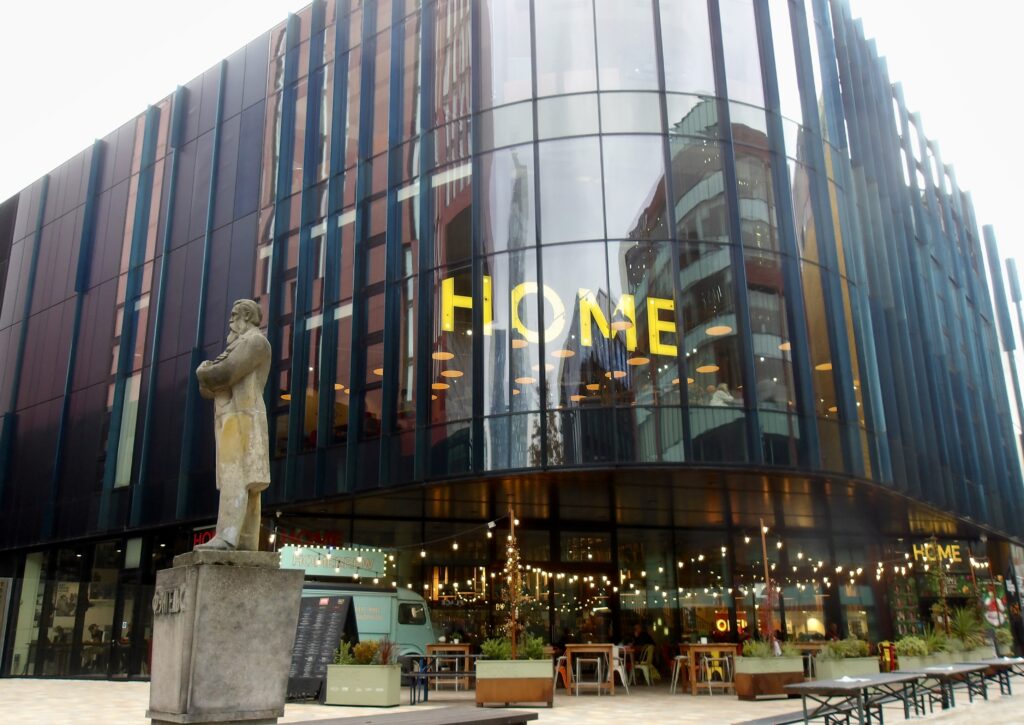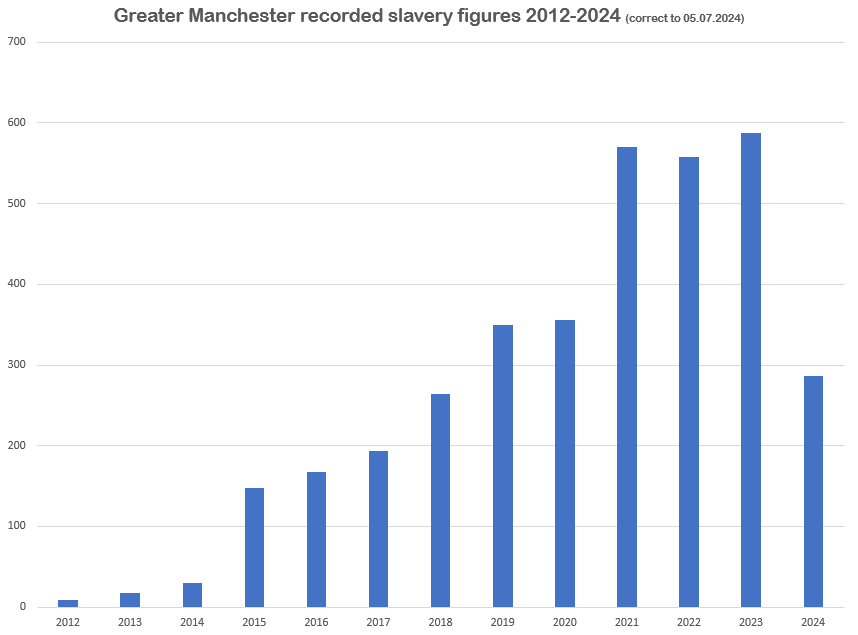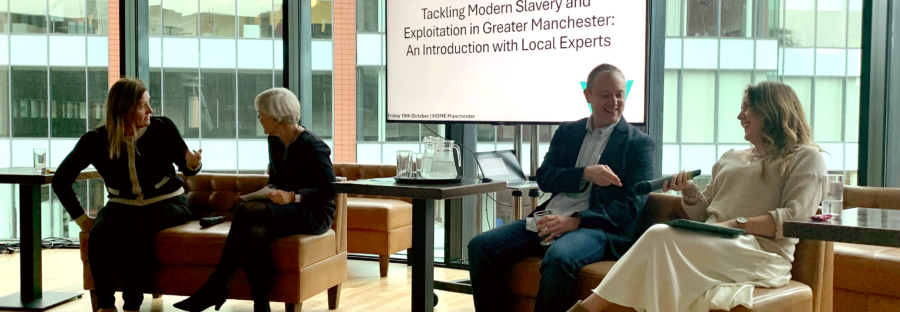Modern slavery ‘major cause for concern’ in construction and care industries
- World Anti-Slavery Day – panel discusses Manchester’s response to modern-day slavery 10 years after GMP’s Programme Challenger is launched
- Rates of modern slavery linked to labour shortage in construction and care industries
- Deputy Mayor Kate Green shares concern for young charity workers in Manchester
- Featured image credit: Leslie Kerwin
Instances of modern-day slavery have been ‘on the rise’ within the construction and care industries in Manchester, with the Deputy Mayor also outlining concern for young charity workers, a conference heard.
The conference, held on world Anti-Slavery Day (18 October) in Manchester’s HOME Gallery, saw deputy mayor Kate Green joined by various experts to discuss Greater Manchester’s response to instances of modern-day slavery.

Speaking at the panel, Angela Hughes – governance manager at Speedyhire – highlighted “major concerns” about the rates of exploitation – and that businesses were being discouraged from reporting issues in their supply chains.
“Construction is on the rise for instances of modern slavery,” she said, a trend that both she and deputy mayor Green believe stems from labour shortages.
“Victims don’t have a voice, they can often look unkempt, people see them coming in on a daily basis with the same amount of people, they’re not allowed access to their mobile phones.
“There’s many things happening in construction, and it’s not just a selective group within the labour sites – it’s cleaning crews as well.
“As a company, we have to fill out an assessment online every single year,” she said.
If businesses indicate they have identified signs of modern slavery in their supply chain, or they have not terminated contracts with offending organisations, their scores are lowered – an outcome Hughes believes “penalises businesses for being honest” and offers no way to solve the problem.
“No one wants to terminate the contract – we want to work with that company to make it right. I think the government has a huge part to play in that. We can’t penalise a company for wanting to do right.”
Speaking to NQ, deputy mayor Green elaborated on the issue of labour shortages, and was keen to emphasise that modern-day slavery is not just an overseas issue.
“If you look at the construction and care sectors, entry-level jobs face poor pay, hard work both physically and emotionally, massive demand for labour, and a huge labour shortage compounded by Brexit,” she said.
“Where we used to look for labour for those sectors we no longer can, because a lot of those people have returned to their home countries. Or have not come, because they no longer can following Brexit.
“There will be vulnerable people born, bred, and who have grown up in this country who are suffering exploitative labour conditions without reason. I see a lot of young people who appear to be students, who appear to be well-dressed, well-presented and confident.
“It’s a difficult job they’re doing, but probably for a lot of those younger people who look pretty and comfortable and well-sorted, this is a way to earn some money.
“But what I also perceive is that these are some very vulnerable people, and I think there is a really fine line between charities who are encouraging these people to do some activity that either supports their employability and social interaction, and when that goes over the line into exploitation.”
Official statistics for modern slavery in Manchester and on a national level have been on the rise year-on-year, an increase that Greater Manchester Police credits solely to increased awareness and improved detection, rather than increasing cases of exploitation.
This also makes identifying consistent trends extremely difficult, though criminology lecturer Dr Jon Davies of the University of Manchester believes that “it’s a snapshot that is overall looking a lot better than it was 10 or 15 years ago”.

Dr Davies believes modern slavery is “just the tip of the iceberg”, and it is the combined effect of a myriad of issues that must be tackled individually.
“It’s much easier for someone to stand up and say ‘we need to tackle organised crime and individual criminals’, but as soon as we start taking about workplace rights and immigration systems, issues become a lot more ‘controversial’,” he said.
“When we think of the wider range of exploitative conditions that occur in the workplace and society, that means looking at labour market, at how things are regulated, and having serious and honest conversations.”
The conference in HOME Gallery was co-hosted by the modern slavery charity Causeway. It comes 10 years after the introduction of GMP’s organised crime programme, Challenger, which was triggered after the murders of two police officers in Greater Manchester.
Councillor Green described Challenger as “tackling serious and organised crime in all of its manifestations, and protecting the victims of serious and organised crime”.
“Challenger sits at every point, and it brings different partners in to deliver a whole system approach,” she said.
“Because it’s a partnership approach, we are able to put all the different pieces of the jigsaw together.
“Protecting the survivor, removing them from the situation of harm, and wrapping around the kind of support that organisations like Causeway can offer: a victim navigator that can help route them to sources of support around housing, education, employment, health and wellbeing; support for them around any decisions that might be taken for them; and support for them throughout the criminal justice process.
“You don’t need to be right if you’re worried, you just need to feel reassured that if you see examples of that, the right thing to do is report it.”


